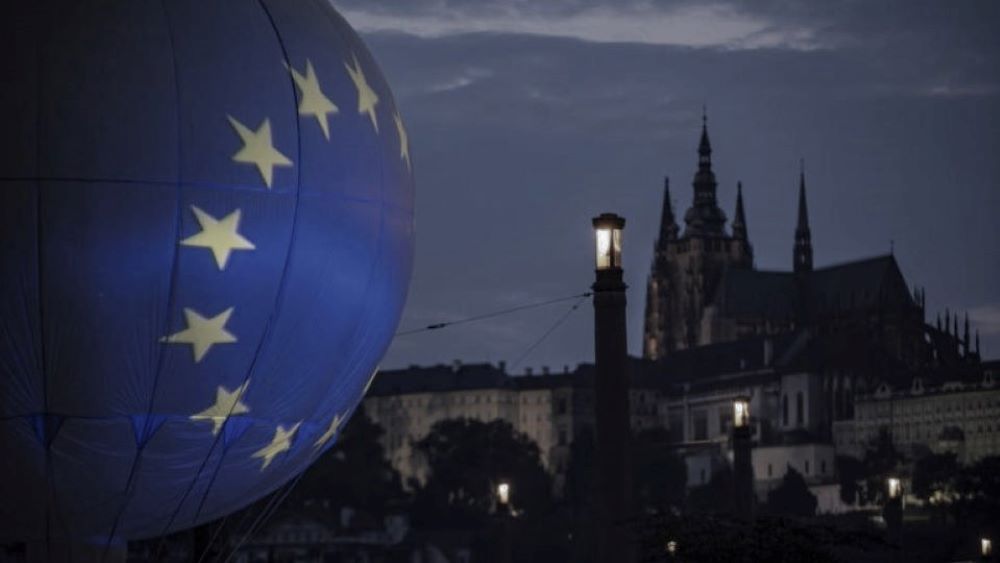The key question is whether the EPC is actually an outer layer in Macron’s, and generally France’s, long-term vision of a multi-layered Europe or a Europe of concentric circles intended for states that the French president believes should be far from the decision-making core.

Nada Bogetić
Half a year after French President Emmanuel Macron initiated the formation of a new type of European community, which at the time aroused the suspicion of countries aspiring to join the EU, as well as individual members who believed that this meant expansion of the Union was being blocked – the topic provoked almost no attention from the public or from political structures in Montenegro.
One of the reasons may be the loose and overly broad structure of the European Political Community (EPC), without clearly defined requirements, projects and benefits, with an invite to everyone except Russia and Belarus. This means that unlike the Western Balkans project, it doesn’t offer any material for mutual undermining or scoring points with voters to actors in Montenegro’s turbulent political scene.
After the inaugural meeting of the European political community, which was attended by 43 leaders earlier this month in Prague and which European officials characterized as “the largest European gathering in recent years”, one gets the impression that the new European format can be interpreted differently by everyone, according to their needs.
While the British Prime Minister Liz Truss expects “tangible results” from the EPC, German Chancellor Olaf Scholz sees it as constructive conversation “without the need for concrete conclusions”; leaders of the Western Balkans, including the President of Montenegro Milo Đukanović, mostly interpret the EPC as a broader framework that is not an alternative to membership in the EU, but includes the Western Balkans in discussions on solving current problems.
“Montenegro is interested in membership in the European Union, not in an alternative to membership, and will support everything, including the European political community, if this is a way to speed up the EU accession process,” said Đukanović.
Despite assurances from Brussels, it would be naive to expect that the conceptual project of a man known for his skeptical views on EU expansion and who did not hesitate to block the opening of accession negotiations for North Macedonia and Albania could contribute to acceleration of the accession process.
Unlike the region where officials, analysts and columnists in various media formats point to the benefits and more often to the dangers of Macron’s project, this type of debate has not been seen in Montenegro. The official narrative of Brussels that the EPC “will not replace policies and instruments, primarily of enlargement, and it will fully respect the decision-making autonomy of the European Union”, is not questioned, and neither is how the new cooperation format of more than 40 countries will be organized and whether it will bring concrete decisions.
The EPC summit was not inspiring debate in Montenegro, among other reasons because it did not deal with topics like democratization of society and the rule of law, but was primarily aimed at demonstrating a united European front against Moscow. It can be said that this demonstration was successful, since the summit was attended by both Serbia and Turkey, though they were the only ones that did not adopt sanctions against Russia.
On the other hand, Montenegro – which, according to the latest report of the European Commission, has not made progress in the reform process necessary for European integration, but is fully aligned with EU foreign policy, especially regarding measures against Russia – was in its comfort zone at the summit.
The key question is whether the EPC is actually an outer layer in Macron’s, and generally France’s, long-term vision of a multi-layered Europe or a Europe of concentric circles intended for states that the French president believes should be far from the decision-making core.
This would be a trap Montenegro cannot afford to fall into, especially not in the current circumstances of extreme polarization and political instability when EU membership is one of the rare goals for which there is social consensus. This is also a trap that the political establishment and the public in Montenegro are unable or unwilling to register while focused on daily political turmoil.
Nada Bogetić is a journalist in the foreign policy editorial office of the newspaper “Vijesti” and a translator



Leave A Comment